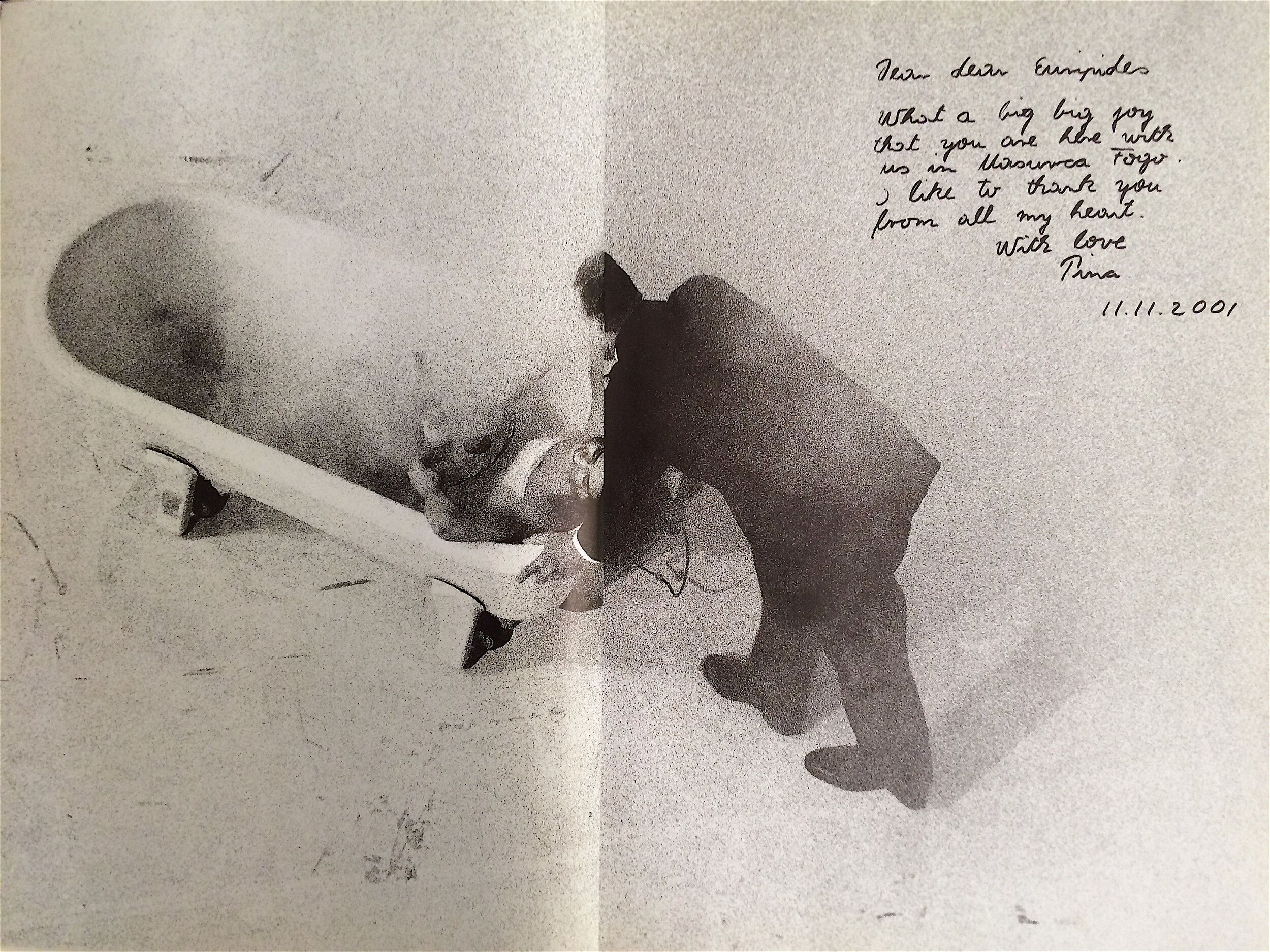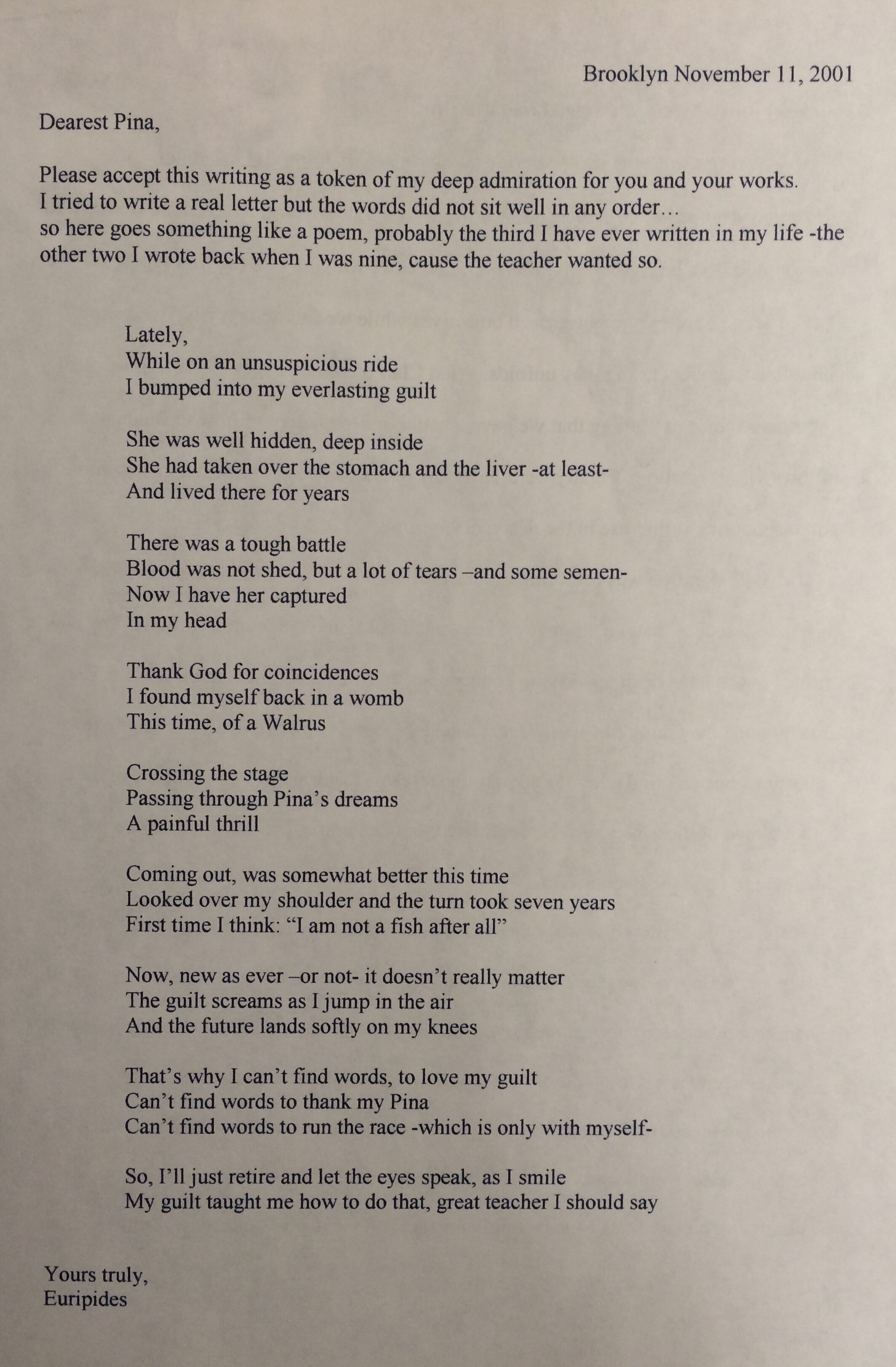Constant Rehearsal. Dance Legacies and Archival Practice
The Whole Life – Archives & Imaginaries was a congress that took place in March 2022 and was part of The Whole Life – An Archive Project. It was held at HKW (Berlin, Germany) and was conceived in collaboration with the international Whole Life Academy and its institutional partners. The congress dealt with archival practices, reflecting on the archives as potential places for anti-hegemonic narratives, investigating the links between them and society, and hence their possible future impact. It included events such as lectures, talks, performances, installations, and screenings.
As part of the congress, Constant Rehearsal – Dance Legacies and Archival Practices was an event that focused specifically on the importance, methods, and usage of archival practices in dance and performing arts. Its content was initially structured around the Pina Bausch Foundation archive and reflected on institutional dance archives in general. Being a former awardee of the Pina Bausch Fellowship for Dance and Choreography, Euripides Laskaridis was invited to present a performance-lecture, joined by members of his artistic team. Furthermore, he participated in the subsequent discussion panel, reflecting on his own artistic and archival practices as a performer.
Euripides broadly referred to ‘The Body as Archive’[1], a concept that avoids making distinctions between archive and body. According to this concept, it is through the body of the performer that the archive becomes visible, perceiving the body as a privileged, living archival site. While acknowledging the importance and necessity of the traditional archival methods (e.g., recordings, video-recordings, hard disks, notes), Euripides urged the spectators to diverge from such a bureaucratic notion of the archive as a (mis)management of the past. During his performance lecture, the character that he impersonated challenged them by raising questions such as:
What kind of archive am I now? With all my little mannerisms? Transformation of my voice? My necklace?
[…]
Could it be that this poor manifestation of movements, which come from an archive, can trick your mind into seeing something that is not there?
[…]
What about the objects? The props? Are they coming from an archive of our postmodern achievements? Or just from the cupboard of my mother?
[…]
What about language? What archive is that? Words that maybe have no meaning, can they convey a message?
The performance lecture – a mini collage of fragments of Euripides’ previous works – took place at the HKW auditorium and was performed by Manos Kotsaris, Dimitris Matsoukas, and Euripides himself. The subsequent discussion panel consisted of Ernst van Alphen (professor of literary studies and author), Ismaël Dia (director of the Pina Bausch Foundation Archive), and Euripides. A video of Alexander Achour (choreographer, performer and educator), presenting his view on the topic, was projected during the discussion.
[1] André Lepecki, The Body as Archive: Will to Re-Enact and the Afterlives of Dances, Dance Research Journal, Winter 2010, Vol. 42, No. 2 (Winter 2010), pp. 28-48, Congress on Research in Dance





